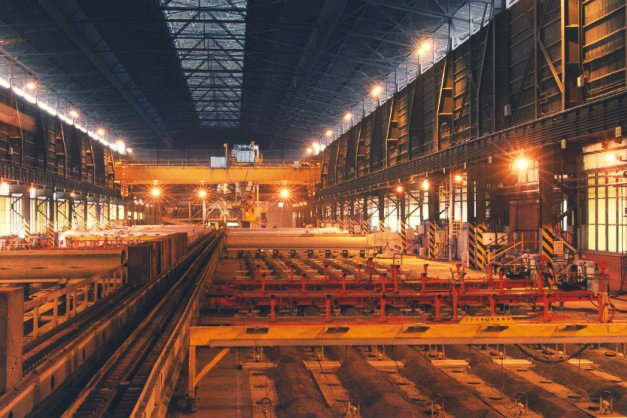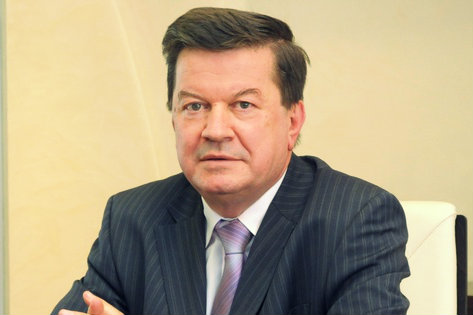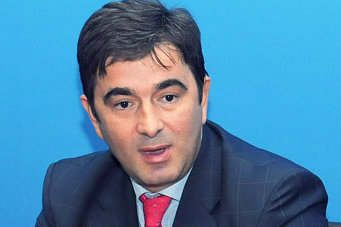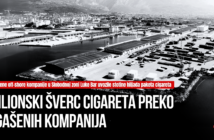Primitive accumulation of capital
 At the time of international sanctions against SRY, while workers of KAP instead of salaries took home bags of flour and detergent packs, around 400 private companies made profit from their work. Instead of defending the state property, the Government too transferred the burden of its debts on the Plant. This is how KAP fell into debtor slavery.
At the time of international sanctions against SRY, while workers of KAP instead of salaries took home bags of flour and detergent packs, around 400 private companies made profit from their work. Instead of defending the state property, the Government too transferred the burden of its debts on the Plant. This is how KAP fell into debtor slavery.
Has the Aluminium Plant from Podgorica reached the end of the road? The answer to this question could be known before this text finds its way to the readers, and only a little later than 40 years since on February 12 1969 the construction of the then KAT (Aluminium Plant Titograd) began.
That business was preceded by the decision of the authorities of former SFRY, to grant to Montenegro, among several interested pretenders, the right to build with the money of international creditors a factory for bauxite processing and aluminium production. The non-ferrous industry was one of the symbols of former Yugoslavia development. It accounted for 3.2 percent of world bauxite and alumina production. Bauxite was dug in 13 mines and processed in four smelters of primary aluminium – from Triglav to Vardar.
THE RISE AND PROBLEMS: After the decision to grant to Montenegro the Aluminium Plant, followed months of negotiations at the local level – weather to build the future factory in Nikšić, in the vicinity of bauxite deposits, or in Podgorica. By political will the second option prevailed, so the local patriots made the verse – We will build in Dajbabe, not in Nikšić even if it were for free. And in 1968 a Contract on Financing was signed with the French Pechiney on financing, engineering and technical support.
Production in KAT began in 1971, and two years later the factory could work with full capacity of 50 thousand tons of aluminium. The Factory for production of alumina, of 200.000 tons capacity started work one year later. In the following years the processing capacities were built and developed (Rolling Mill, Forging Plant, Silumini…) while one of the events that determined to a large extent the future of the Plant happened in 1985 when the corner stone for the so called Second Phase was set, whereby the capacities for the production of primary aluminium were doubled.
In 1997 Monitor revealed a compensation scheme according to which privileged private companies made profit procuring the needed goods and spare parts for companies such as EPCG. Since they, due to accumulated debts of KAP, could not pay in cash, KAP would enter the story
This doubled the foreign currency revenues from aluminium export, but ecological problems and the production costs increased manifold. The growth in energy consumption was in particular problematic because the cheaper, domestic sources of electric current became too small to meet the growing needs of Montenegrin industrial giant. The Government did not care: the production chain of KAP produced almost one half of Montenegro’s GDP. The share in export was even bigger.
The following event, maybe the crucial one for the destiny of today’s KAP, happened in January 1989. This is when the ,,young, handsome and smart” officials of the Communist Association of Montenegro, with the aid of street protests in which the workers of KAP played an important role, carried out ,,anti-bureaucratic revolution” and took over the power from their older party comrades.
The years of disintegration of SFRY followed, wars at the territories of its former republics, international sanctions against SFRY. In economic terms, all this was followed by the transformation of the former social into the state and private capital.
Political and economic pluralism brought to KAP only the pluralism of data on business operation. What is the share of KAP in Montenegrin GDP? Do the costs of import and the value of electric energy consumed surpass the export revenues of the Plant? To what extent does KAP influence the environment in the Zeta plane? Different answers were given depending on the needs of those stating them, but the public never had an opportunity to hear the expert and impartial analysis of the real data.
SANCTIONS, WAR, PARS, WHITE EAGLES AND OTHER: Thus, officially, the period from 1989 to 1991 was very successful for the factory. ,,In that period KAT, owing to a favourable discount (33 percent) due to war risk, bought off at the secondary market its 40 million dollars worth foreign debt for only 12 million. After that it collected the foreign currency differences from the National Bank of Yugoslavia …”, brings Monitor, at that time the only independent magazine in Montenegro, statements of KAP management. However, at the same time, the magazine writes also on how the entire 120 million dollars worth aluminium export goes over the company PARS, which was founded by the ruling party (the then Communist Association of Montenegro renamed DPS). Along with an adequate commission, concludes Monitor.
At the time when KAP was privatized, it turned out that these “pre-sanctions debts” were still a burden for the company balances. PARS was not mentioned any more. Its role was taken over by numerous private companies from Montenegro and Serbia redirecting, over their accounts and warehouses, everything that at that time entered or exited the Plant from Podgorica.
 Mihailo Banjević, On the eve of privatisation, the President of the Board of Directors of KAP repeated several times the statement that at that time 400 private companies did business with KAP, and that there ware „a lot of someone’s aunts, sisters and sisters in law in it, and some of them wanted to cooperate more, but KAP did not, so there are probably some hurt interests “.
Mihailo Banjević, On the eve of privatisation, the President of the Board of Directors of KAP repeated several times the statement that at that time 400 private companies did business with KAP, and that there ware „a lot of someone’s aunts, sisters and sisters in law in it, and some of them wanted to cooperate more, but KAP did not, so there are probably some hurt interests “.
The calculation was confirmed also by Dragan Brković, owner of Vektra from Podgorica. Denying the claims that his company was the main importer, transporter and shipping agent of raw materials for KAP and exporter of its final products from 1991 to 1996, he too stated that at that time „over 400 private companies did business with KAP”. Still, a specific list of companies that cooperated with the Plant in the first half of the last decade has remained to date a well kept secret.
This is why we bring only a few characteristic examples:
– At the beginning of 1992, instead of KAP, the company White Eagles, established by the members of the political organization bearing the same name, sold aluminium to Montenegrin processing plants.
– The General Director of KAP Danilo Vuksanović signed in 1995 a contract on business-technical cooperation with Radovan Stanišić, the owner and director of the company Yugal from Niš. The Contract envisages for Yugal to pay aluminium according to the system of consignment (subsequent payment of the sold part of goods) with the discount of 20% obtained „based on the costs of new products development” in relation to the valid price list for domestic market. Data, however, show that Yugal paid the aluminium from Podgorica up to 50 percent cheaper. The company from Niš justified this high discount by payment in foreign currency.
– In 1997 Monitor revealed a compensation scheme according to which the privileged private companies made profit by procuring the necessary goods and spare parts for state companies such as EPCG. Since KAP did not pay for electricity, EPCG did not have any money for advance payment of the necessary procurements. That is why the goods were paid for by KAP – in aluminium and EPCG reduced its claims towards the Aluminium Plant for the invoiced amount. In these transactions Elektroprivreda lost at least 40 percent of their value (hundreds of thousands of marks were concerned), and this money flowed into the pockets of suppliers.
Former Deputy Prime Minister Žarko Rakčević indicates that business related to the trade in flats and business premises between the Government and Vektra, on the account of KAP, is not stainless: ,,Information on that contract appeared at a Government session only on July 1 ’98, even though the decision was made at the time of unified DPS, in December ’96”
Why did not KAP sell metal and pay the bills? Maybe the answer lies in the fact that in this concrete case the owner of the company Krug which carried out these compensations was the brother of the General Director of KAP Danilo Vuksanović – Momčilo Vuksanović.
VEKTRA: Yet, the most interesting story is the one on cooperation between the Aluminium Plant – private company Vektra – Government of Montenegro. Vektra was founded in 1990, as the representative office of Peugeot for Montenegro. In just ten years they became one of the most powerful Montenegrin companies.
Explaining the “secret” of company success, Dragan Brković states: the construction of the housing-business complex in the elite part of Podgorica where the Government of Montenegro is also situated (middle of the last decade). Rent and modernization of anode plant Anotech (2000) which operated under the patronage of the Aluminium Plant and the purchase of faltering state companies (business initiated in 1999.)
This story lacks a period of four to five years in which the company for import and sale of French cars was transformed into one of the biggest in Montenegro.
 Nebojša Medojević tried to resolve this enigma. At the time when KAP was privatised, Medojević as the coordinator of the NGO Group for Changes explained: „The ruin of the Plant begins at the time of hyper-inflation. That is when KAP had a great opportunity to capitalise and increase its value, becuse it was producing goods that were sold for foreign currency. Thus, KAP as an exporter could have enormous inflation profit. However, instead of KAP making profit, a number of private mediators are introduced, the most significant of which is Vektra company. According to some data, at the time of inflation Vektra bought the biggest quantity of aluminium, and did so for worthless dinars. It resold that same aluminium for dollars, at the stock exchange price. Instead of KAP obtaining the inflation profit, it was appropriated by Vektra and a group of privileged companies. That is when some private companies, primarily Vektra, accumulated the first huge capital.’’
Nebojša Medojević tried to resolve this enigma. At the time when KAP was privatised, Medojević as the coordinator of the NGO Group for Changes explained: „The ruin of the Plant begins at the time of hyper-inflation. That is when KAP had a great opportunity to capitalise and increase its value, becuse it was producing goods that were sold for foreign currency. Thus, KAP as an exporter could have enormous inflation profit. However, instead of KAP making profit, a number of private mediators are introduced, the most significant of which is Vektra company. According to some data, at the time of inflation Vektra bought the biggest quantity of aluminium, and did so for worthless dinars. It resold that same aluminium for dollars, at the stock exchange price. Instead of KAP obtaining the inflation profit, it was appropriated by Vektra and a group of privileged companies. That is when some private companies, primarily Vektra, accumulated the first huge capital.’’
At that time (beginning of privatisation of KAP) Vektra was claiming more than 60 million dollars of debt from the Plant. Brković tried to explain: ,,What differs Vektra from the remaining creditors of KAP is that 60 percent of its claims are Government’s debts towards my company for flats and business premises”, responded the owner of Vektra in an interview for the daily Vijesti. „Since 1996 to date, on these grounds, not a single cent was paid. According to the Government’s cession KAP was obliged to deliver to Vektra metal in equivalent of flats and business premises. However, not a single contract on delivery of metal was realized due to difficulties in which the Aluminium Plant found itself at that time”.
As if Brković had forgotten that some time earlier, in December 1998, he boasted: ,,Vektra was made long ago and it is one of the first domestic companies that eight years ago entered business relations with KAP. This cooperation was in particular intensive during sanctions”.
Former Deputy Prime Minister Žarko Rakčević states that business with the trade in flats and business premises between the Government and Vektra, at the expense of KAP is not stainless: ,,Business with Vektra, to which the Government owed more than 50 million marks, for the purchase of housing and business premises was concluded without a public tender. Later, by the contract on cession, the debt was transferred to KAP. Through that transaction KAP became a big debtor to Vektra“, stresses Rakčević in the interview for Monitor in 2004.
OVERFLOWING OF PROFIT: While around KAP, according to the same model and over night, arise private empires, the factory merely survives and its workers wage a battle for pure survival. The balance sheet of KAP for the year 1993 witnesses: the produced aluminium was booked at the price of one dinar per ton.Thus KAP was left without the basic financial resources, sentenced to take future debts according to the principle: by all means.
At the same time, out of around 4.5 thousand workers in KAP, one third is on forced holidays, the installations are working with 30 percent of capacities, and former salary fund worth seven – eight million dollars was reduced to only 400 – 500 thousand marks.
The president of trade union in Aluminium Plant states, in October 1993 data on supplying of workers with foodstuffs during the previous three months: 50 kg of flour per worker, 15 liters of oil, three kg of detergent, 25 kg of solt, 20 kg of veal, 50 kg of sugar and five kg of rice. „The value of all this was reduced from workers salaries, or more precisely they received their salaries in kind”.
In May of the following year the Commission for control of work of inventory commissions, established by the Working Council of the factory, determines that around ten thousand tons of aluminium are lacking from KAP, whose worth at that time exceeded 12 million dollars. The foreign currency dealings of the company were also suspicious. ,,For stimulating export, which actually did not exist, KAP received from primary emission over 8.5 million DEM, and the Government of Montenegro gave a credit of 14 million dollars for goods on the stock”, they report in May 1994. ,,On the other side, KAP owes to foreign suppliers around 2.2 million dollars, 88 thousand marks and 564 thousand Italian liras”. The General Director of KAP Danilo Vuksanović explained the deficit by ,,stupid mistakes of previous inventory commissions”. And everything remained as it was before.
Vuksan Vujošević, economist and one of former executives of KAP, calculated, at the beginning of this decade that the effects of sale, in the years from 1980 to 1990 were on average by 500 dollars higher per ton of produced aluminium than the effects achieved in the decade from 1990 to 2000. In his calculation Vujošević united the effects of metal processing and long term arrangements in which KAP achieved significantly bigger effects than through sale at clean stock exchange. ,,The average sale price in the period until 1990 was significantly higher than the average one on the stock market, as opposed to the price in this decade which is far below the stock exchange one”, explained Vujošević with the claim that ,,debts are a direct result of this negative difference”.
In 1999 KAP is a company “on its knees”, hundreds of millions of dollars in debt, with the production sold in advance. How did this happen and where did the property of the Plant end? The Government has been trying to hide the answer to this question all these years.
Sporadic announcements of truth being revealed, turned out to be just throwing of dust in the eyes. After local players, big international ones also enter the story on the ruin of KAP. The first of them all was the Swiss Glencore.



